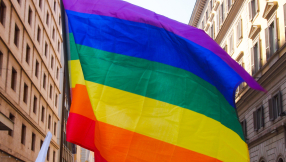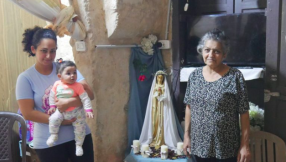More than half of evangelical Christians (52 per cent) view Islam as "essentially a violent religion," a new report from Barna Group reveals, though only about a quarter (26 per cent) of all American adults feel the same way.
Despite the general perception of Islam within the evangelical community, 68 per cent of evangelicals agree with the statement: "Peace between Christians and Muslims is possible."
Researchers also found that 79 per cent of mainline Christians, 82 per cent of college graduates and 75 per cent of all American adults also believe such peace is possible.
The report indicates that those who associate with different religious groups tend to view Islam differently. Only 30 per cent of non-evangelical born again Christians, 26 per cent of Catholics and 20 per cent of people who are agnostic or have no faith also consider Islam to be violent. In contrast, 62 per cent of people who are agnostic or who have no faith agree that "Islam is essentially a peaceful religion," and 59 per cent of Catholics, 47 per cent of non-evangelical born again Christians and 27 per cent of evangelicals agree.
The Muslim faith of the suspected Boston Marathon bombers, Tamerlan and Dzhokhar Tsarnaev, has recently been addressed by some media outlets as they discuss possible motives for the brothers' alleged actions. The Barna Group report indicates that 68 per cent of Americans agree that "extremists have unfairly distorted people's perceptions of Islam," while only 15 per cent disagree.
The US as a whole, however, is nearly evenly divided into three parts concerning its overall perception of the Muslim faith, which has 1.57 billion adherents worldwide. One-third (33 per cent) of Americans view Islam favorably, while 36 percent have an unfavorable view and 31 percent are unsure.
Among evangelicals, 39 per cent have an unfavorable perception of Islam and 23 per cent have a "somewhat unfavourable" view, while just 16 per cent have a "somewhat favourable view" and five percent have a "very favourable" view. Another 17 per cent are unsure.
In comparison, 43 per cent of Protestant pastors have an unfavourable view of the religion, 29 per cent have a somewhat unfavorable view, 20 per cent have a somewhat favorable view and eight percent have a very favourable view.
In the report, Barna Group President David Kinnaman says the findings raise some questions for American Christians.
"While Muslims remain a very small part of the entire US population, the world is shrinking in many ways," he said. "Events like those in Boston focus the public's attention on Islam. Increasing immigration of Muslims into the country changes population densities. The Internet and social media bring human beings of different faiths and contexts into closer digital proximity. And the implications of events in predominantly Muslim nations, including the Middle East, affect millions around the world. For example, how do US Christians help support persecuted Christians who live in other countries, without demonizing Muslims at the same time?"
Kinnaman added, "Christians don't have to give up on their faith convictions, yet it is important to live and work compassionately and graciously with members of the second largest religion in the world. Some of the public's response to the Boston attacks showed how easy it is to lump people into a group labeled as different and dangerous. Yet, it is important to see the human beings behind the Islamic label while discerning the fundamental differences between following Christ and Mohammed."
The report is based on two nationwide studies conducted last year, one that surveyed 602 senior pastors of Protestant churches and another that polled 1,008 American adults in general.
In addition to explaining Christian perceptions of Islam, the report also examines perceptions based on political views and age. Those who are politically conservative are more likely than those who are politically liberal to have at least a somewhat unfavourable view of Islam. Elders (ages 67 and older) are also less like likely than Mosaics (ages 18 to 28) to have a very favourable perception of the religion and are more likely to have a very unfavourable perception.













